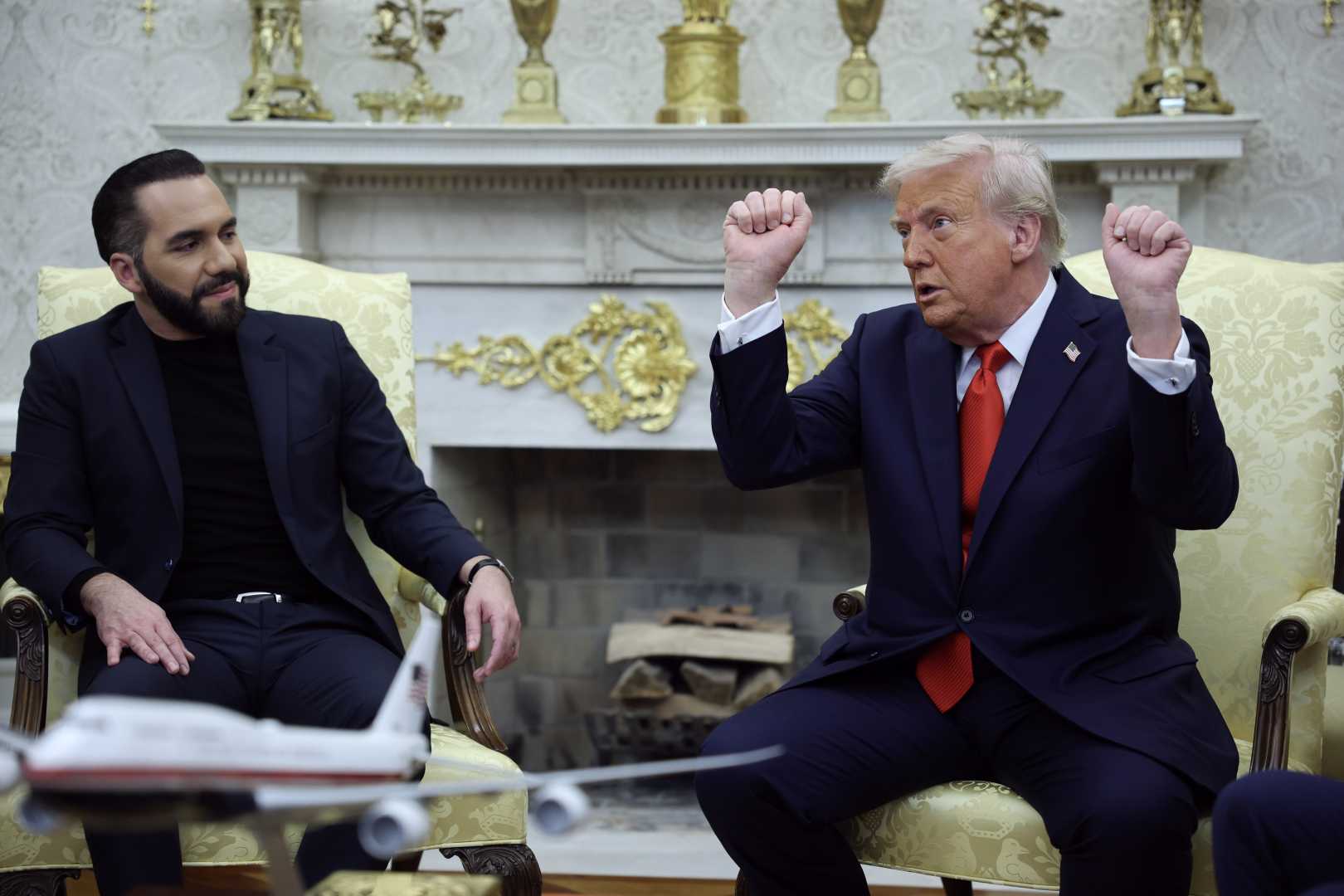Politics
Trump’s Proposal to Detain U.S. Citizens Sparks Legal Controversy

Washington, D.C. — President Donald Trump announced Monday that his administration is exploring a controversial proposal to detain U.S. citizens and potentially send them to prisons in El Salvador. Speaking alongside El Salvador’s President Nayib Bukele, Trump said, “The homegrowns are next, the homegrowns. You’ve got to build about five more places,” referencing the need for additional prison space in El Salvador.
The proposal has been met with widespread criticism from legal experts who argue it violates U.S. constitutional protections. David Bier, an attorney with the Cato Institute, said, “It’s obviously unconstitutional, obviously illegal. There’s no authority in any U.S. law to deport U.S. citizens and certainly not to imprison them in a foreign country.” Bier also raised concerns about Trump’s prior actions, suggesting he might sidestep legal barriers by moving swiftly before courts can intervene.
The discussions come on the heels of El Salvador’s recent actions to house U.S. deportees, many of whom were flown back after being detained for suspected gang affiliations. Critics have raised alarms about the conditions at Salvadoran prisons, noting that inmates often lack necessary sanitation and basic amenities.
During a press briefing, White House spokeswoman Karoline Leavitt acknowledged that Trump has publicly and privately discussed the proposal. Despite the backlash, she indicated that the administration is examining possible legal pathways to implement such a policy.
Legal scholars warn this move could represent a dangerous encroachment on civil liberties. “Courts will almost certainly prevent this from happening,” stated Lee Gelernt, an attorney with the American Civil Liberties Union. Senator Jon Ossoff (D-Ga.) also condemned the idea, labeling it a “moral and legal travesty” in light of documented prison conditions in El Salvador.
This isn’t the first instance of such proposals coming from Trump or his administration. Bukele had previously offered to take on part of the United States’ prison burdens, detailing plans to house convicted criminals as part of a financial agreement with the U.S. Trump has indicated openness to this concept, stating he would pursue similar arrangements with other countries as well.
The conversation around this proposal highlights the legal complexities and ethical implications tied to U.S. citizens and their treatment under the law. Legal experts and civil rights advocates remain vigilant against potential overreach by the Trump administration as discussions proceed.












